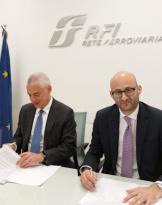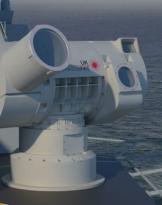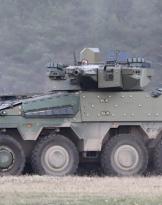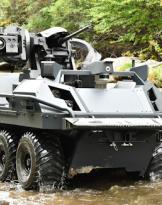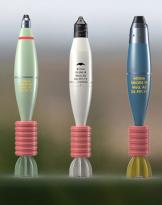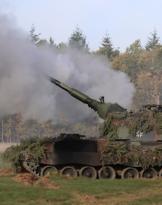Do not read with the lenses of geopolitics - as well as with the "natural" ones of the economy - the transactional projects of innovations and procurement in the AD&S field it means risking not fully understanding the scope of these projects.
On October 31st one was held in Rome meeting between defense leaders of Italy (Guido Crosetto), United Kingdom (Grant Shapps) and Japan (Yoshiaki Wada) on the Global Combat Air Programme, the joint program for the creation of a sixth generation fighter. The program GCAP extension it involves not only the development of the aircraft itself and its weapons systems, but also of systems unmanned, i.e. drones, intended for combat and combat support operations, controlled by the pilot through what has been defined as "swarm intelligence". In other words, GCAP is a program that aims to develop a “system of systems” that can not only compete but provide a real advantage to users in modern multi-domain conflicts, therefore well beyond a “simple aircraft”.
From the last Multiannual programming document 2023-2025 of the Italian Ministry of Defense, among other things, it emerged that the GCAP is the program to which the greatest resources have been allocated and, therefore, the one on which the "Country System" is focusing most for the development of its Armed Forces in the near future.
The hunt Tempest, the name of the aircraft under development in the GCAP, is expected to be developed by 2035. The GCAP consortium includes industrial giants such as Leonardo (Italy), Avio Aero (Italy), BAE Systems (UK), Rolls-Royce (UK), Mitsubishi (Japan) and MBDA (Fra-Uk-Ita).
 The meeting in Rome was fundamental because it was announced that the treaty to start the parliamentary approval process for GCAP will be signed in Tokyo by the end of 2023. This is a notable step forward, which confirms from a geopolitical perspective Italy's closeness to the Anglosphere (a peculiarity it shares with Japan), and which comes immediately after the invitation from Leonardo's CEO, Roberto Cingolani , aimed at Italy to review its participation in GCAP upwards.
The meeting in Rome was fundamental because it was announced that the treaty to start the parliamentary approval process for GCAP will be signed in Tokyo by the end of 2023. This is a notable step forward, which confirms from a geopolitical perspective Italy's closeness to the Anglosphere (a peculiarity it shares with Japan), and which comes immediately after the invitation from Leonardo's CEO, Roberto Cingolani , aimed at Italy to review its participation in GCAP upwards.
The line does not deviate from the traditional strategic proximity of Leonardo (formerly Finmeccanica) with the value chain and the technological frontier of the Anglo-Saxon Powers, but it is important to highlight how much the Italian government has decided to focus on GCAP also in the face of a review of the transformations of conflicts and the international scenario more generally.
In some respects, the desire to strengthen its share of participation in the development of the Tempest and its integrated drone system is part of the new course "assertive conservative” of the foreign and defense policy of the executive led by Giorgia Meloni, who has ministers such as Crosetto, Tajani and Urso as points of reference in this respect.
Rival of the GCAP is the Franco-Spanish-German FCAS (Future Combat Air System), dominated by Airbus Defense and Space (Germany) and Dessault Aviation (France), with which a sort of antinomy between Euro defense industrial systems has arisen -Atlantic and Euro-continental. Rivalry that had emerged in the recent past with the "tug of war" between Airbus and Leonardo, won by the latter, for the supply of multi-role helicopters to the British RAF. It has been news in recent days that the Berlin government wants to disengage from the FCAS to enter the GCAP, trying to exploit London for its "good offices", guaranteeing not only its own not nocet political, but also the authorization to sell 48 Eurofighter fighters Typhoon to Saudi Arabia. The sale of the 48 Euro Fighter the British to Saudi Arabia had, in fact, already collapsed in March 2018 precisely because of German opposition. The contract in question is worth eleven billion dollars.
This would not be the first signal, although it would be the most important, that the Germans have given to the Saudis. In fact, already in September 2022, from the meeting between the German Chancellor Olaf Scholz and the Saudi Crown Prince Mohammad Bin Salman Bin Abdulaziz, Berlin's desire to expand the carnet of exceptions on exports linked to the current arms embargo in comparisons with Riyadh.
 However, it should be highlighted that the issue, once again, is tangled and insinuates itself into the old rivalry between industrial systems - laws between governments - of the various countries involved. The Royal Saudi Air Force currently has 47 Eurofighters, speaking only of aircraft intended for combat Typhoon EF-2000, of 57 F-15Cs Eagle, of 149 F-15SA Eagle and of 80 Tornado IDS. One of Riyadh's objectives is to modernize its air fleet, but a country like Saudi Arabia is exposed to the elements of international tensions and, therefore, its procurement military is conditioned by some significant issues.
However, it should be highlighted that the issue, once again, is tangled and insinuates itself into the old rivalry between industrial systems - laws between governments - of the various countries involved. The Royal Saudi Air Force currently has 47 Eurofighters, speaking only of aircraft intended for combat Typhoon EF-2000, of 57 F-15Cs Eagle, of 149 F-15SA Eagle and of 80 Tornado IDS. One of Riyadh's objectives is to modernize its air fleet, but a country like Saudi Arabia is exposed to the elements of international tensions and, therefore, its procurement military is conditioned by some significant issues.
Both the fluctuating relations with the Biden administration and the posture taken against Israel due to the ongoing war in the Gaza Strip push the Riyadh court not to trust US supplies. It is true that Washington and Riyadh have a mutual interest in supporting each other for the containment of Iran, but, at the same time, it is unthinkable that the United States could not use it as a political tool of blackmail - or of "shaping" the diplomatic posture - towards Saudi Arabia the interruption of supplies of weapons and weapon systems, including multi-role fighters.
Hence the choice to focus on partners deemed by the Saudis to be more "reliable" or, in any case, more inclined to manage bilateral relations as exclusive "business matters". France therefore remains a potential partner for Saudi Arabia. It seems, in fact, that Riyadh wants to buy the French multi-role fighters Flurry, branded Dessault Aviation, in a number ranging from 100 to 200. The Flurry it is the direct competitor of the Eurofighter Typhoon and this duality re-proposes the clash, already mentioned, between European defense industries and Atlantic and continental-oriented projects.
Despite the main flaw of the Flurry in its various versions is linked to the development designed exclusively for the operational needs of the French Armed Forces, placing a serious conceptual-doctrinary limit on exports, it is clear that in the absence of alternatives, the transalpine fighter is the most suitable to be purchased for States that intend to procure fourth generation aircraft.
 It is precisely by passing through the "tight loopholes" that regulate the policy of exports of weapons and systems developed in a multinational consortium that France can carve out its own market share in the Gulf. This is why, from the perspective of industrial competition, the need to reshape the German arms embargo against Saudi Arabia has its own reason which goes beyond economic interests and clearly becomes of a political nature.
It is precisely by passing through the "tight loopholes" that regulate the policy of exports of weapons and systems developed in a multinational consortium that France can carve out its own market share in the Gulf. This is why, from the perspective of industrial competition, the need to reshape the German arms embargo against Saudi Arabia has its own reason which goes beyond economic interests and clearly becomes of a political nature.
Thus, while in London someone said they were open to the possibility of Saudi Arabia also joining the GCAP - which saw an outcry in the opposite direction to Rome and Tokyo - there are also those in Berlin who aim to abandon FCAS, even if L'Federal Office for Equipment, Information Technology and In-Service Support of the Bundeswehr (BAAINBw) announced last October 28 that it had stipulated a national study contract to commission the further development of technologies within the “Next Generation Weapon System” (NGWS) project, the core of the FCAS programme.
It seems strange, therefore, that Germany suddenly wants to exit a program for which it has invested and continues to invest huge sums, such as to suggest a more than convinced adhesion to the industrial and strategic-military project in question.
Photo: Leonardo / Ministry of Defense / US Air Force / Airbus





